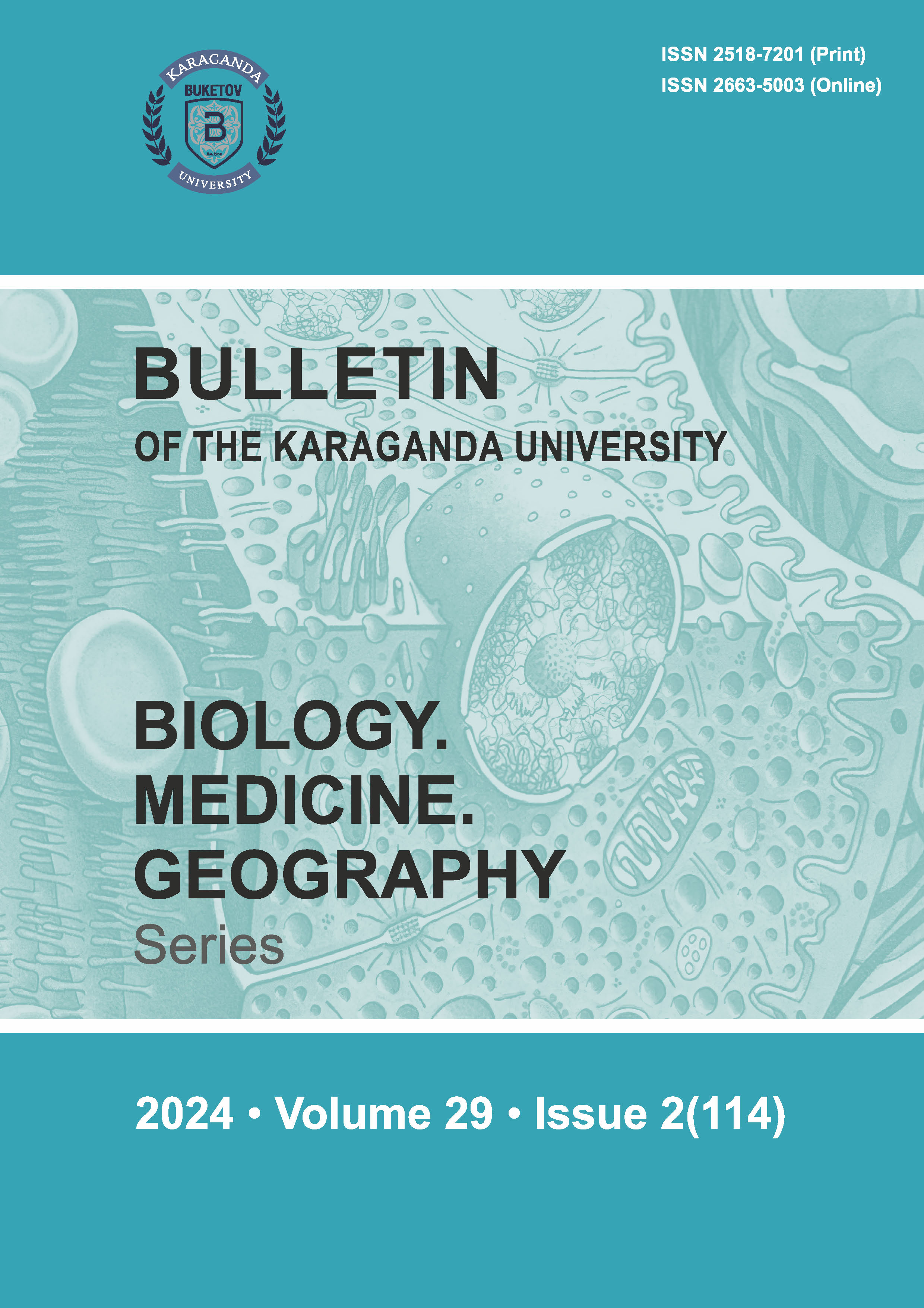Frequency of rs731236, rs7975232 and rs1544410 single nucleotide polymorphisms of Vitamin-D Receptor (VDR) gene among the Kazakh ethnic group
DOI:
https://doi.org/10.31489/2024bmg2/57-63Keywords:
rs731236, rs7975232, rs1544410,3'UTR polymorphism, single nucleotide polymorphism, vitamin D receptor (VDR) gene, genotype frequency, allele frequency, Kazakh ethnic groupAbstract
In the article the pilot study results of the genotypes and individual allele’s frequency of single nucleotide polymorphisms (SNPs) rs731236, rs7975232 and rs1544410 in vitamin D receptor (VDR) gene were presented. The participants were representatives of the Kazakh ethnic group. The SNPs were determined by real-time polymerase chain reaction using the amplification-refractory mutation system (ARMS) technology. The relevance of the study is that rs731236, rs7975232 and rs1544410 contribute to the regulation of VDR gene expression. This affects the synthesis of the VDR protein and its activity as a transcription factor. VDR regulates various metabolic pathways, including the immune response to infectious diseases. In rs731236, the A allele (68.9 %) prevailed over the G (31.1 %). The AA, AG and GG genotypes were 52.1 %, 33.6 % and 14.3 %, respectively. For rs7975232, there were no significant differences in the alleles A and C (42.4 % vs. 57.6 %). There was a predominance of AC and CC genotypes (39.5 % and 37.8 %, respectively), over AA (22.7 %). Allele A of rs1544410 was not found in the Kazakh population. The allele C was 65.6 %, T — 25.6 %, and G — 8.8 %. The frequencies of the CC and CT genotypes were similar (40.3 % vs. 39.5 %). It is possible to study the influence of these SNPs on COVID-19 susceptibility among Kazakhs.



